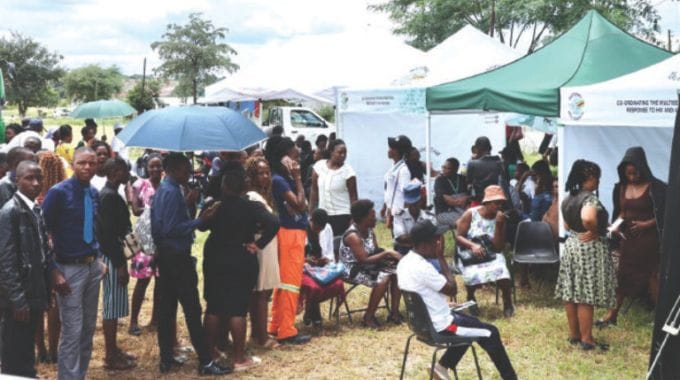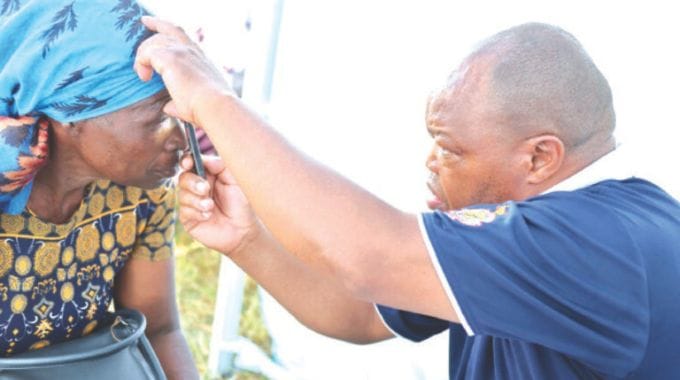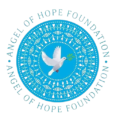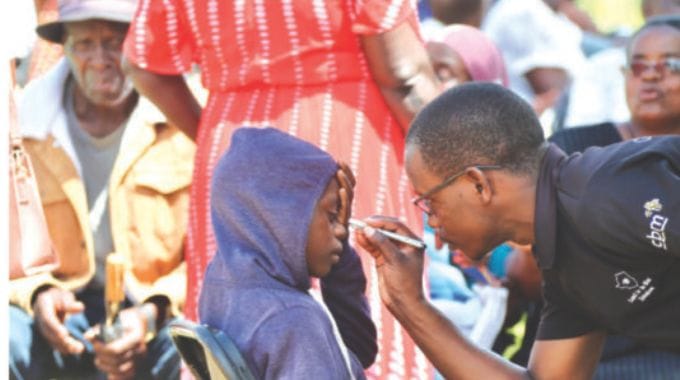First Lady’s medical outreach works wonders in Masvingo
Tendai Rupapa in MASVINGO
Cases of people enduring excruciating pain and letting it dissipate on its own or even dying without seeking medical help are common across communities, especially among men.
Studies and testimonies by medical experts indicate that men shun health checks and present for treatment usually when it is late.
Some men use their spouses’ health as a yardstick for their own and largely conclude that once their wives are certified healthy, they too will be safe.
It is for this reason that Angel of Hope Foundation patron First Lady Dr Auxillia Mnangagwa is taking her fully equipped mobile hospital and mobile clinic for medical outreaches in the provinces to ensure no place and no one is left behind in her mission to save lives and ensure everyone knows their health status.
Her mission has produced great results as evidenced by what she encountered in Masvingo during her medical outreach programme, which was supported by the Ministry of Health and Child Care.
Amai Mnangagwa has been urging people to get checked for ailments, especially men whom she said needed to be screened for prostate cancer.
A case in point is Sekuru Silas Dzirasha from Chivi, who was losing weight spectacularly and often spent his time sleeping, complaining of feeling weak and having a headache.
So serious had this become that he was now struggling to put food on the table for his family since he had stopped going to work.
As someone who had just finished constructing a three-bedroomed house, he never sought treatment and firmly believed he had been bewitched by close relatives who did not want to see him succeed.
Fortunately, when health ambassador First Lady Dr Auxillia Mnangagwa took her medical outreach to Masvingo this week, he was found to be diabetic and immediately placed on treatment.
Sekuru Dzirasha’s tale is similar to that of Gogo Revai Zizhou.
She was suffering in silence until health experts at the First Lady’s medical outreach discovered she was hypertensive and prescribed the drugs that have seen her regain her strength.
“When feeling unwell, one has to visit the hospital and not harbour bad thoughts about certain people. Sickness, if not treated, can make you hate others for nothing.
“I now always pray to God for forgiveness because I was always blaming people for crimes they didn’t commit,” said Gogo Zizhou.
A young man who preferred to be identified only as Brighton, said he had received solid counselling through the First Lady’s medical outreach and was now looking at life with renewed vigour after quitting drug and substance abuse.
“I just do not know how best I can thank the First Lady for her great love for the people of Zimbabwe. I was taking drugs after being introduced to them by bad friends.
“I had become an animal and lost respect for my parents and siblings. But after the First Lady’s address and the help I got from experts at the outreach, I am now a new creation. I really thank her for her love,” he said.
Ms Lilian Moyo also had her reasons for thanking the First Lady.

“I was struggling with pain in my breasts which resulted in me spending most of my time sleeping and crying. I was told by experts at the First Lady’s medical outreach that I could be in the earliest stages of breast cancer and they have recommended further tests while I was given medication to relieve the pain.
“I come from a humble family and my parents cannot afford the costs of examinations. The medical outreach came as a blessing in disguise for me and I can only thank the First Lady for her love. She is a well-meaning mother of the nation who deserves everyone’s prayers. I encourage other people out there to come forward and seek help during this outreach so they can be examined and told what is afflicting them,” she said.
Mrs Sunungurai Chikozhere (67) from Chivi North saluted the First Lady for rolling out the medical outreach.
“We were gratified by what the First Lady did to assist the people of Masvingo province which shows her deep organisational skills. Yesterday, I was screened for cervical cancer and other non-communicable diseases (NCDs). I am back again today as we are being checked for eyesight free of charge. Amai also gave us food hampers and inputs,” she said.
Mr Remigio Marandure (69) was happy for the services unlocked by the First Lady.
“We came here yesterday and were screened for prostate cancer. Our mother did well for us and today I am here again to be screened for eyesight challenges, thanks to our mother’s benevolence,” he said.
In a speech read on his behalf by Provincial Epidemiology Disease Control Officer (PEDCO) Dr Tapera Saravoye, Masvingo provincial medical director, Dr Amadeous Shamhu, said Masvingo province was excited to be hosting the medical outreach which came to life because of the visionary leadership of the First Lady.
“Indeed, we are more than grateful that Amai has seen it fit for the community of Masvingo to benefit from this cancer screening and wellness programme.
“The programme is for everyone as we aim to screen for cervical cancer, breast cancer, and prostate cancer in men. We are also doing eye screening, HIV testing, and hypertension checks. Family planning and outpatient consultations are also being done,” he said.
Cervical cancer, he said, is a preventable disease, adding that globally, cervical cancer is the fourth leading cause of death among women.
It is estimated that one woman dies from the disease every two minutes. Sub-Saharan Africa has the highest rates of cervical cancer in the world, making it the leading cancer-related cause of death in the region.
“In 2018, Zimbabwe had an estimated 3 156 new cases of cervical cancer and 2 151 cervical cancer deaths, a very big cause for concern for a disease which is preventable. To eliminate cervical cancer as a public health problem by 2030, it is recommended that 90 percent of all women of reproductive age with precancerous lesions should be treated using an effective method but that only depends upon their early identification through screening.
“To ensure that no one is left behind, VIAC (Visual Inspection with Acetic Acid and Cervicography) screening outreach activities and treatment camps are being conducted thanks to the First Lady’s initiatives.
“We are therefore immensely grateful for the synergies we are receiving from our partners, especially the NAC (National Aids Council) for their profound support in that regard,” he said.
Dr Shamhu said the elimination of cervical cancer as a public health problem by 2030 was a possibility.
But to achieve this, he said, they want to encourage every eligible woman first to get screened and those found to have VIAC-positive results to be treated.
“The treatment modalities that the Ministry of Health and Child Care is using are effective and are also recommended by the World Health Organisation. As the Ministry of Health and Child Care, and as Masvingo province, in particular, we do not want to leave any woman behind, and we will continue working hard to ensure equitable access to cancer screening and other preventive services. I want to reiterate the old time-honoured saying that prevention is better than cure and therefore encourage every woman to make every effort within her means to prevent cervical cancer.
“Breast cancer caused 670 000 deaths globally in 2022. Breast cancer was the most common cancer in women in 157 countries out of 185 in 2022. Breast cancer occurs in every country in the world. Approximately 0,5 percent to 1 percent of breast cancers occur in men. Yet this, like all other cancers, is very preventable through regular breast self-examination, examination by experienced health professionals, and a screening test called mammography. Early screening accords an individual early identification of both pre-cancer and cancer of the breast followed by early treatment which prevents further complications and/or death,” he said.
Dr Shamhu added that prostate cancer has also become a major concern among men not only in Masvingo but the world over.

“Prostate cancer (PCa) is the second most common cancer in men worldwide. In 2020, there were an estimated 1,4 million PCa diagnoses and 375 000 deaths due to prostate cancer for those men who sought medical care. There is a high likelihood that this is an estimate as men rarely want to seek health care until it’s too late.
“I would therefore like to take this moment to encourage all men to prevent premature deaths due to prostate cancer by going for regular screening and treatment when the need arises,” he said.
NAC programmes officer for Masvingo, Mr Munyengetero Masunga described the First Lady’s medical outreach as a blessing.
“We are blessed to have Amai assisting in the response. We used to have high levels of stigma and discrimination but with increased awareness raised by the outreach of our First Lady, Dr Mnangagwa, we have seen that people are now free to come and access the services ranging from testing for HIV to accessing treatment for those who would have tested HIV positive.
“We also have cervical cancer affecting most women who are HIV positive, but now because we have the mobile outreach that is coming to enhance efforts on the ground, we have seen several people openly accessing the services.
“Yesterday, we had six teams testing for cervical cancer in the outreach. We also are happy that we have added the critical service that is quite costly for people to access in Harare, the breast cancer screening and its coming with the mobile outreach has made life easier for the majority of people who cannot raise resources to access the service. We also have our prevention thrust where we even have family planning services looking at condom distribution.
“They are here offering services. With HIV several conditions have crept in where we have non-communicable diseases so we also have a team that is screening for sugar, and eyes. For our cervical cancer and wellness day we had a full house of those services and we appreciate our mother, the First Lady. We hope that these outreach programmes will take us somewhere targeting our vision of ending Aids by 2030,” he said. – Herald

